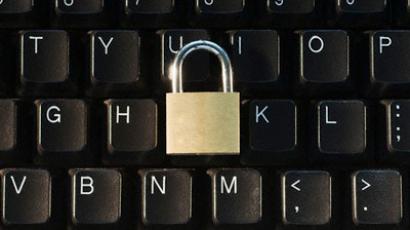EU porn ban voted down amid censorship concerns
Language that would ban online pornography has been dropped from a report approved by the European Parliament. But major concerns over the future of Internet privacy remain as legislators themselves were blocked from reading constituents' complaints.
Members of the European Parliament voted 368-159 in favor of
passing a report titled “Eliminating gender stereotypes in the
EU.”
The rejection of a controversial “porn ban” proposal has seemingly become a major victory for online freedom. But the result was “a little bit unclear,” Christian Engstrom, MEP with Sweden's Pirate Party, told RT.
“The European Parliament said no to turning Internet service providers into porn police, and they said no to setting up authorities to regulate media,” Engstrom explained, adding, though, that the European Parliament still expresses support for an older resolution to ban pornography.
The particular clause has been dropped from the text of the new resolution, but it still contains references to an earlier resolution passed by the parliament in 1997 which calls for “statutory measures to prevent any form of pornography in the media and in advertising.” Although the resolution is not legally binding, it can be used as a basis to form legislation.
The “gender stereotypes” report was first introduced back in December 2012. The porn-blocking proposals were suggested by MEP for the Dutch Socialist Party Kartika Tamara Liotard, and went mostly unnoticed until some of the MEPs sounded the alarm in March calling on citizens to protest the measure.
The controversy further escalated after hundreds of e-mails sent
to MEPs about the vote were blocked.
Engstrom was one of the MEPs outraged by the interference by the
European Parliament’s IT department to filter politicians’
mail.
“I wrote a letter to the president of the European Parliament, complaining and saying that I find it completely unacceptable, if the Parliament’s IT support department suddenly decides to block communication from my voters,” Engstrom told RT.
“My job as an elected parliamentarian is to be in contact with citizens and voters,” he added. “I find it unacceptable that the Parliament blocks that.”
Similar tactics to shield MEPs from the voice of the people were used during the worldwide protest against the Antipiracy Trade Agreement (ACTA) which is seen as a direct attack on privacy and freedom on the Internet.

Although ACTA was rejected by most of the European Parliament, activists are concerned that legislators are still looking for alternative routes to impose censorship under the guise of copyright protection or protecting audiences from harmful information.
“In general we see this trend with many different actors wanting to censor the Internet, wanting to control the Internet,” Engstrom said. “So what we’re doing is trying to defend the freedom of the Internet, because we believe it is absolutely essential in a free and open society to have a free Internet, without censorship and without a lot of surveillance.”
Meanwhile, at the level of member states EU legislators are also mulling the idea of banning pornography. Last December the UK became the first country to try and block access to all pornography websites. The idea however was rejected over the lack of public support.
Later in February, Icelandic legislators revealed that they are
looking for the best technical ways to “tackle porn on the
Internet,” raising concerns that Iceland’s online pornography
censorship scheme would be implemented all over the EU.














